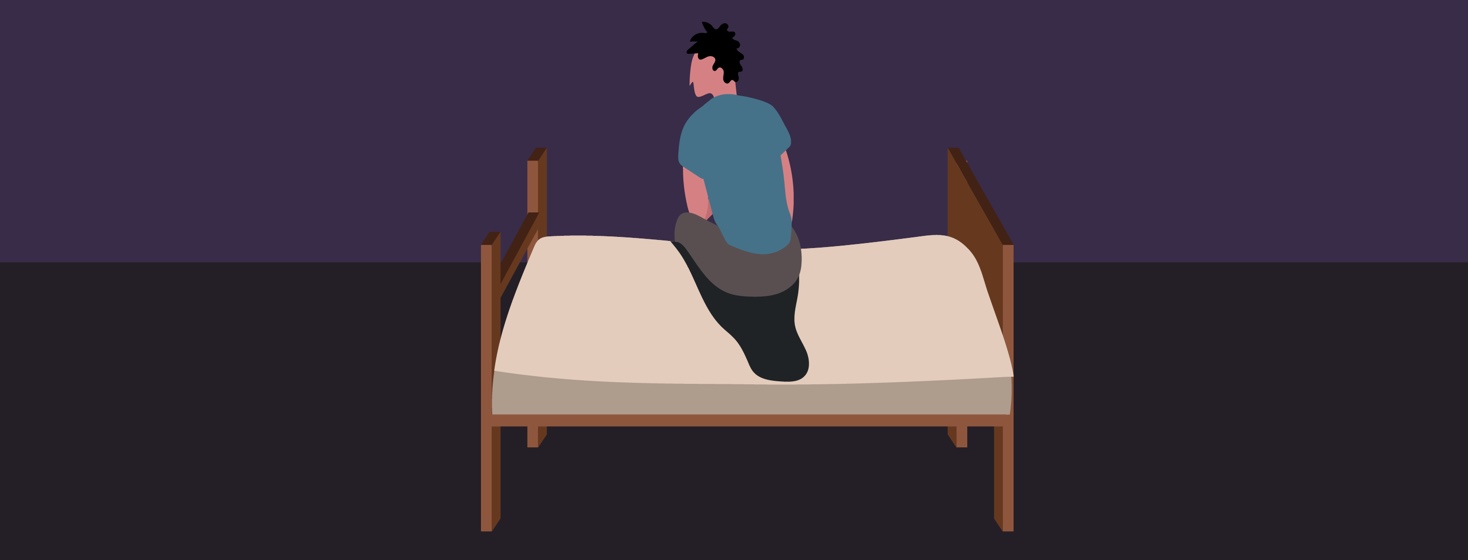Seeking Sleep
I used to be a world-class sleeper. Once I was visiting my parents, sleeping on the couch in the living room. A tornado warning came up in the wee hours of the morning. Sirens were going off; radios and lights were turned on; coffee was made; discussions were had about seeking shelter. I slept right through it. Thought my family was telling a big story when I finally woke up the next morning.
RA has all but demolished that blissful, dreamy state. I can still fall asleep, but I seldom sleep through the night. I wake up, afraid to look at the clock and calculate how little I’ve slept and how long it will be before the alarm goes off. I stay in bed knowing that my body is getting some rest even if my brain is not, and hope that my eyes will close once again. Often I give up after about an hour and read or cruise the net on my tablet. People are no longer surprised to get emails from me at 3:00 am.
Rheumatoid arthritis and sleep deprivation
Since my sleeplessness seems to be tied to how well my RA is controlled, not being able to sleep is an early warning sign that I’m flaring or (worse) my latest treatment is failing.
Do I treat RA symptoms or the insomnia?
Being a “fix-the-problem” kind of girl, I’m all about trying to make RA behave. Usually when I’m flaring, the first step is to add a short course of prednisone. For me, that’s an excellent way to calm down temporary symptoms. The only problem is (as we all know) prednisone can cause sleeplessness.
The other alternative is to try to treat the insomnia rather than the RA, and I’ve tried all kinds of things.
I’ve done the holistic routines: warm baths, chamomile tea, melatonin, etc.
I’ve also tried various medications.
Featured Forum
View all responsesUsing over-the-counter medications
For various reasons, I generally only take acetaminophen (for example, Tylenol) for pain and I often take a couple before bed. This helps me go to sleep, but it doesn’t help me stay asleep for more than a couple of hours.
Acetaminophen "PM" for pain and sleep
My rheumatologist suggested that I try the “PM” version of acetaminophen which includes Benadryl, an antihistamine that is known to make people drowsy. That worked. For about three nights. Then it quit working.
Gabapentin for improving sleep patterns
After a few nights of non-sleep, when I have gotten severely sleep-deprived, I’ve taken a gabapentin. Gabapentin is a medication that works on the nerves. It’s often prescribed for fibromyalgia, to prevent seizures, and to prevent pain and damage from shingles infections.
It also increases certain sleep patterns (yes!) and calms things like restless leg syndrome (RLS). I’ve found that with RA I have kind of an all-over RLS. Often I’m not in pain, but I just cannot get comfortable. So gabapentin really helps. I wake up feeling wonderfully rested. My rheumatologist even suggested that I take one every night.
Side effects of gabapentin
But like any medication, gabapentin comes with its share of side effects. I take approximately 15 prescription medications. I don’t need to add more drugs and more side effects. The one that bothers me the most? It causes me to gain weight (just like prednisone). As one of my new year’s resolutions is to lose another 25 pounds, this isn’t helping. As a result, I try not to take it more than once a week or so.
Compromising side effects and drug benefits
But I’m hopeful that there may be a solution on the horizon. I had my annual checkup with my primary care physician this week. Under my list of complaints, I indicated insomnia and explained to her the issues I’d been having and how I’d tried to solve them.
Trying a lower dose of gabapentin
She suggested that I try a lower dose of gabapentin. I’d been taking the standard 300 mg dose, but it also comes in 100 mg capsules. We are hopeful that this is enough to sustain a decent night’s sleep but not enough to cause the weight gain and other troublesome side effects I experience. Fingers crossed. Sufficient sleep is an important part of keeping RA under control.
Your takeaway from all this?
Well, I am not qualified to give medical advice and, even if I were, I certainly wouldn’t recommend that everyone go out and take another prescription medication. What I do recommend that if you’re having a problem, that you talk to your healthcare providers about it.

Join the conversation